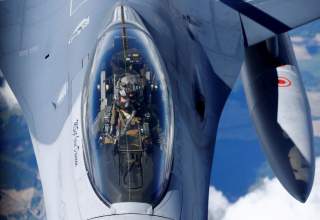A Strategic Reset for NATO
Donald Trump's criticism that the alliance isn't fit for form is valid. NATO needs an overhaul.
- Work with European NATO members to develop a political-military plan for the stabilization of Libya and play a supporting role to the main European effort, which will likely require deployment of stabilization forces and establishment of a beachhead to deal with the source of refugees embarking across the Mediterranean Sea.
- Develop a counter-terrorism intelligence fusion and operations center that is part of the NATO command structure, thus coordinating the police, internal security and military responses to terrorism.
- Develop an agreed strategy and political-military plan to defeat the remnants of the Islamic State which is a threat to the member states.
A Trump Doctrine for NATO
In essence, the new construct is analogous to the Nixon Doctrine, only this time for the wealthy countries of Europe. Nixon pledged to come to the defense of allies in the developing would should they be threatened or attacked by major power. However, he insisted under the Nixon Doctrine that these states principally carry the burden for internal defense and lesser contingencies, though assisted with U.S. training and economic and military aid. In Europe today, European NATO members are fully capable of providing for their own defense.
To implement this doctrine, the United States should play an active supporting role and develop a three- to five-year timeline and program to create the needed European capabilities. We need to shore up vulnerabilities now, but this has to be part of a plan to create European capabilities and to set limits on the U.S. role that enable us to prioritize the challenge in East Asia, deal with ongoing threats in the Middle East, and work within our fiscal constraints.
Zalmay Khalilzad was the Director of Policy Planning in the Department of Defense and U.S. Ambassador to Afghanistan, Iraq and the United Nations.
Image: A U.S. Air Force pilot looks at a KC-135 aerial refueling aircraft as he refuels his F-16 fighter during the U.S.-led Saber Strike exercise in the air over Estonia June 6, 2018. REUTERS/Ints Kalnins

